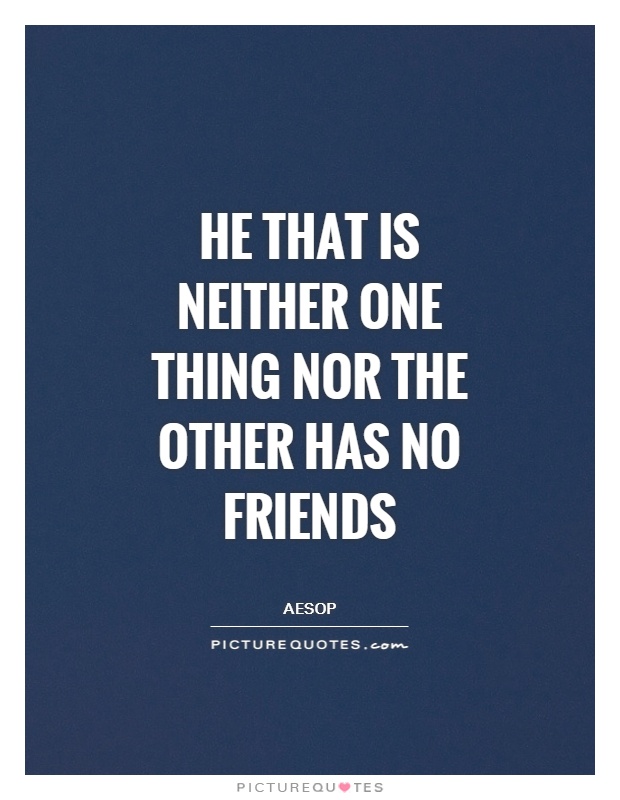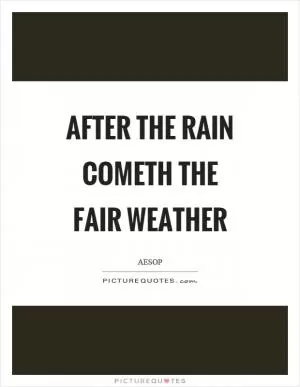He that is neither one thing nor the other has no friends

He that is neither one thing nor the other has no friends
The quote "He that is neither one thing nor the other has no friends" is a powerful statement that holds true in many aspects of life. This quote can be attributed to Aesop, a Greek storyteller and fabulist who is known for his fables that often contain moral lessons. In the context of Aesop's fables, this quote can be interpreted as a warning against being indecisive or lacking a clear identity.In many of Aesop's fables, characters who try to please everyone or who are not true to themselves often face negative consequences. For example, in the fable of "The Fox and the Grapes," the fox tries to convince himself that he does not want the grapes because he cannot reach them. However, his true desire for the grapes is revealed when he walks away with a disdainful attitude. This fable teaches the lesson that pretending to be something you are not will not lead to genuine friendships or success.
Similarly, in the fable of "The Tortoise and the Hare," the hare is overconfident and arrogant, while the tortoise is steady and determined. The hare's lack of focus and consistency ultimately leads to his downfall, while the tortoise's perseverance and dedication help him win the race. This fable illustrates the importance of staying true to oneself and not being swayed by external influences.












 Friendship Quotes
Friendship Quotes Love Quotes
Love Quotes Life Quotes
Life Quotes Funny Quotes
Funny Quotes Motivational Quotes
Motivational Quotes Inspirational Quotes
Inspirational Quotes